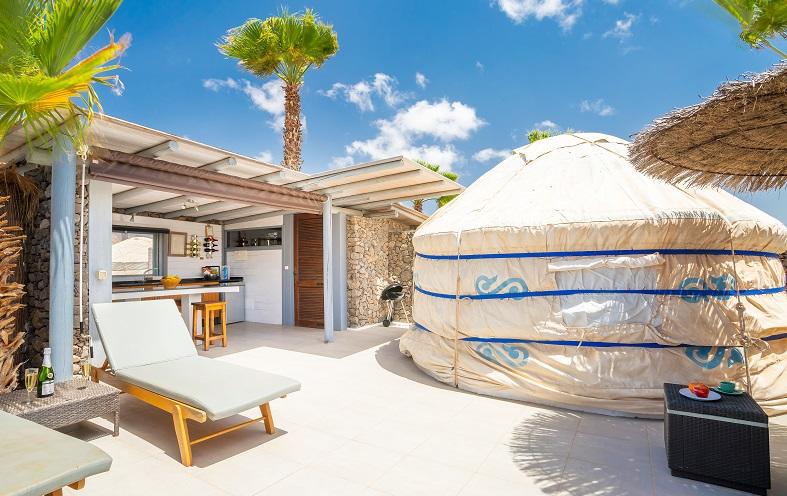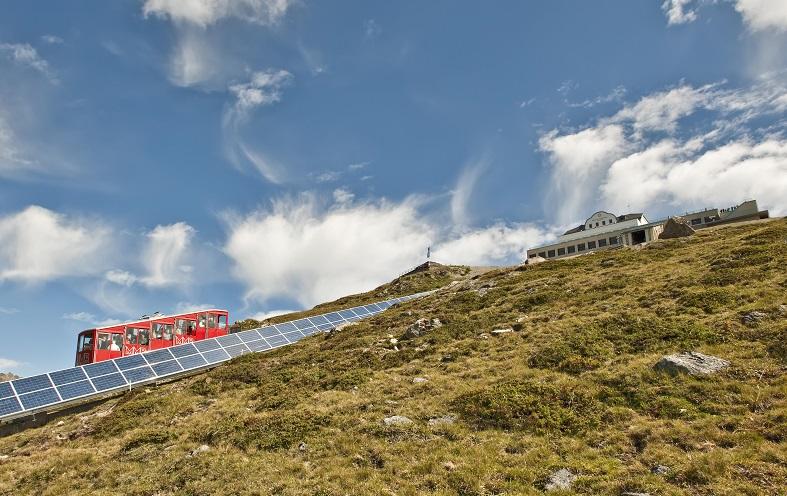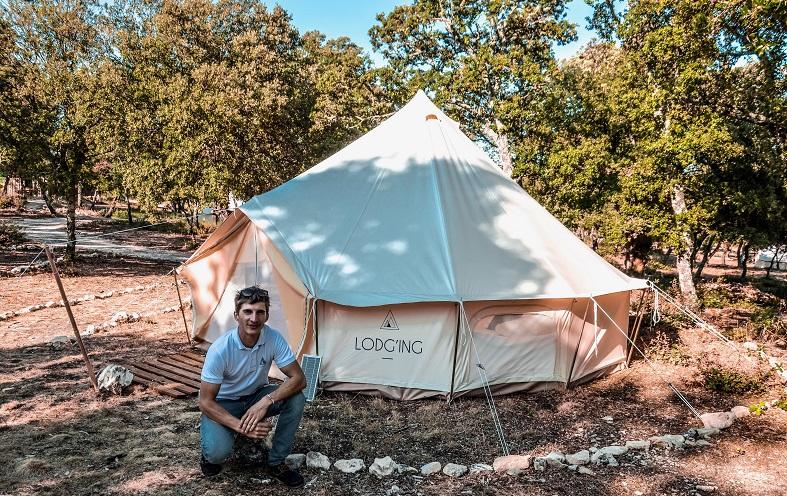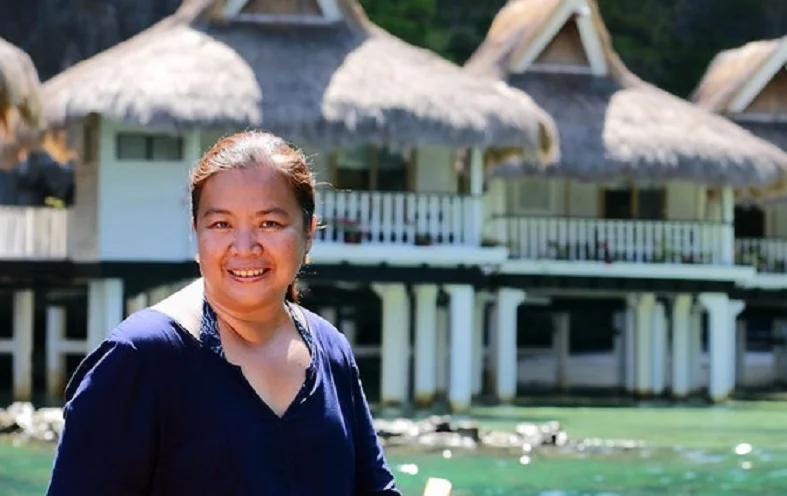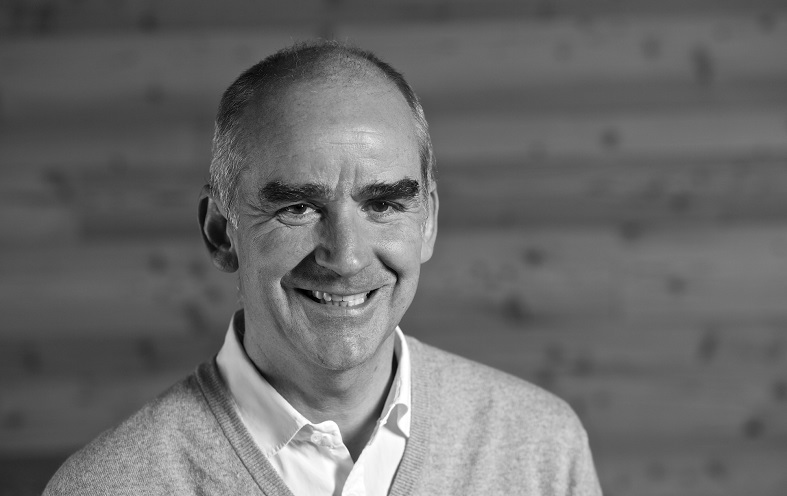Hans Pfister, owner of Cayuga Collection, shares his experience of managing sustainable hotels and lodges in Costa Rica and across Central America, and how catering to clients in the luxury segment brings its own benefits. With a “locals only” approach, hotels under Cayuga Collection offer food which is ethically and locally sourced, and use products that are handmade by local artisans. Hans illustrates how – through actively involving members of surrounding communities in the Cayuga hospitality businesses – this unique collection has created a sense of pride and belonging among the locals.
Cayuga Collection’s dedication to engaging and empowering local communities was honored with a Tourism for Tomorrow Award in 2018 by the World Travel & Tourism Council, and a National Geographic World Legacy Award in 2017.
Hans, do you remember what first got you interested in tourism and sustainable development?
Since I was little, I was always interested in hospitality and travel. I loved foreign countries and dreamed of travelling on the Trans Siberia Railway. I did an AFS high school exchange year in the US (Maine) in the 80s and was out and about on Interrail every summer in Europe. I loved learning languages and exploring different cultures. I am passionate about service and knew that I would want to work in hotels. My first job was running a little bar in my hometown in southern Germany.
Sustainability? I love pristine nature and being in the outdoors and growing up in Europe in the 70s and 80s, I was exposed to the green movement that started there. When I then came to Costa Rica and saw this incredible country, I was hooked.
Central America has been the focus of your venture Cayuga Sustainable Hospitality. There are currently ten sustainable luxury hotels in Costa Rica, Nicaragua and Panama under your wing. Do you have plans to add more hotels to your collection?
Yes, we are planning to add more hotels to the Collection, but we are very selective. It has to be the right fit. We have 10 different hotels and 10 different owners that consider their hotels their life projects, or “babies”. So we need to have great chemistry with those owners and we need to make sure we share the same values.
We have walked away from great opportunities because the owners of the project did not want to go the extra mile to take care of the staff and were not genuinely interested in investing in the infrastructure to make their hotel more sustainable.
We work with hotels with no more than 50 rooms (we prefer around 25 to 30), that is focused on the luxury segment of the market and that have a strong commitment to sustainability. We love opening new markets and being the first in the region like we did in Panama with Isla Palenque, or Aguas Claras in Costa Rica.
We are currently focusing on Central America but might be looking at South America and the Caribbean if something interesting comes up. Travel time to and from the hotels, language and knowing the local legal, tax and labour law systems could be barriers to entry to new countries.
We are getting requests for our services from far away places like Indonesia, Kenya or Canada, but right now we are not set up to work there. Maybe in a few years, we can team up with a partner in a different part of the world and expand.
Which was the first hotel that joined the Cayuga Collection? How did you convince them to trust in your mission towards sustainable luxury travel?
Lapa Rios Lodge on the Osa Peninsula in Costa Rica was the first hotel. We started there 20 years ago. We were the result of a process that the founders of Lapa Rios started, called the “Ecolodge Dilemma”. They had built a very successful lodge and conservation project, but wanted to get out of the day to day management and eventually sell the hotel. It took almost 20 years to find the right buyer and the hotel was finally sold in June 2019. The owners, now in their late 70s, are very happy that they had found an exit strategy. More on this topic in this recent blog.
Today, the criteria to be part of the Cayuga Collection are the following:
- We need to make sure we share the same values in terms of sustainability, conservation and especially how hotel owners treat their staff and the local community.
- We need to be clear that it is about the triple bottom line and not just short-term profits.
- We need to make sure that the location and concept of the hotel have a chance of being successful in the market (location is still very important in the hotel industry) and we want to inspire our guests.
There is not really a checklist. It’s more about using our instinct and experience for making the right decision.
Cayuga Sustainable Hospitality is dedicated to managing and developing sustainable luxury hotels, resorts and lodges in Latin America. Why the focus on luxury travellers only?
We manage small hotels. They can only be profitable and have a real impact if there is enough revenue. And the way to achieve this is at a high rate.
We also found that only luxury hotels can afford to hire a management company like Cayuga. It is also important to know that you cannot be everything to everybody, so we decided to focus on luxury.
One thing which we also learned over time is that wealthy guests often have influence over others. So if we get those guests and inspire them about sustainability, we can have a multiplier impact. We have had many guests that are company owners, CEOs, celebrities, Nobel price winners, politicians, etc. and we think that we have made an impact with them.
Congratulations on Cayuga Collection winning multiple awards in recent years! What impact does such recognition have on your business?
It was a great honour to win the National Geographic World Legacy Award in 2017 award and then a year later WTTC’s Tourism For Tomorrow Award.
I don’t think it had an impact on hotel sales, in terms of revenues. But it had a huge impact on our staff members. We took the award from hotel to hotel and everybody took a picture with the award trophy and shared it with friends and family.
It also gave our work as a management company credibility with new clients. We are very proud to have won those two awards, especially knowing how many other great companies had applied and who the other finalists were.
With close to 17 years of experience with Cayuga, how has your understanding of sustainability changed since you first got involved?
There has been a strong shift in the tourism industry to understanding that sustainability is all about people. At the beginning it was more about smart use of resources and conserving the natural environment. And that is still an important focus. But we learned that without the “buy in” of our staff and the local communities where we operate, no nature conservation is successful in the long term. So, creating employment opportunities, offering training and opening career paths is our main focus.
The other thing I learned is the focus on local. We only hire local staff and that includes management. We only serve local products in our restaurants, and we produce and buy local furniture, décor and equipment whenever possible.
Which are the main topics and concerns linked to tourism sustainability at the moment in Central America?
We know that tourism is a great force for the good if done right. But it can destroy whole areas if done wrong. I hope that Central America does not repeat the mistakes of some Caribbean destinations and sells out to mass tourism. There is a chance to do things differently here. Costa Rica is a great example and we try to inspire our neighbours in Panama and Nicaragua also to focus on quality tourism, not just the number of visitors.
Like many other places around the world, there is concern in Central America about the economic and political situation and the potential turmoil which this can bring to a destination.
And of course, we are also feeling the signs of climate change through extreme and unusual weather patterns, excessive rains, droughts, increase in temperatures, etc.
In your blog, you mention that, because of more and more international tourists, the vast jungles and amazing wildlife of Africa and tropical forests of Costa Rica are increasingly becoming safe from poaching and deforestation. Do you think that the onus has shifted to travellers and responsible businesses like yours in conserving natural resources, compared to governments?
Really successful conservation needs to be done in public and private sector alliances. Just the government or private companies by themselves won’t make it.
Costa Rica is a great example of public-private partnerships in tourism over 30 years or more, and how sustainable development goals can be put in practice.
Sustainability is about inspiring each other. Sharing success stories. Looking for synergies and then showing the value of what has been achieved to everybody involved. The creation of national parks in Central America is not always a welcome event at first, but when you can show that it generates more wealth than cutting trees down or agriculture, you will soon get a buy in from everybody.
Prince Harry just started a new sustainable travel initiative called Travalyst. How unique is this initiative compared to other global sustainable travel initiatives?
I am not sure how unique it is as the plans are still very vague. What is unique is that it comes from him and he and his wife have the opportunity to inspire as they are part of the royal family, but then again also the rebels. Harry is following the footsteps of his mother in that way and if there are concrete actions planned, this can be successful.
You have extended a cordial invitation to Prince Harry and his family to come and visit your hotels and lodges in Central America and to show them what you’ve learned about sustainable travel over the last few decades. What key learning would you share with him?
I think it is not about just one thing. It is about how it all comes together. We talked about our focus on the people and the concept of local. But what I would do with him is the same thing that we do with all of our guests that are interested. We offer a complimentary back of the house tour where we show our guest all we do in the hotel in terms of sustainability.
There are no “staff only” areas in our hotel. We are a transparent organization. We take our guests to the kitchen, to the purchasing department, the laundry, the maintenance area, staff cafeteria and housing. We show them how we avoid using single-use plastic, how we separate waste, compost, grow vegetables or produce our own furniture from fallen wood.
There is so much to see and talk about that the tour often takes over two hours. I think with the Prince, we would have to plan for at least half a day. And we could finish making tortillas at the end.
You take pride in creating a warm and inspiring culture at Cayuga as a workplace. What role does social sustainability play nowadays in the context of sustainable tourism?
It is all about people. If our staff feel taken care of and that there are opportunities, they will take great care of our guests. We have long time employees that started as construction workers before the hotel was open and moved up to top management positions.
But it goes beyond the staff in the hotels. If the community feels that a hotel is bringing value to the people that live there, they support the operation and may even defend it. As our minister of tourism, Maria Amalia Revelo, recently said: You cannot have five-star hotels in one-star communities.
Anything else you’d like to mention?
I often get asked about sustainability certification for hotels. We participate in the local certification program but I am not a big fan of certification in general. I think it can lend itself to greenwashing, which is a huge problem in our industry. So when I get asked how a traveller can find out if a hotel is really sustainable, I ask them to look for service-level employees in the hotel and ask them what sustainability means to them. How are they contributing to sustainability every day on their job? How is the hotel where they work making a difference?
If you get a blank stare from them, even if they have this fancy certification plaque at the entrance, you know something went wrong…
Thank you, Hans.
Find out more about Cayuga Collection here. Follow Cayuga Collection on Facebook, Twitter, YouTube or Instagram.
Enjoyed our interview with Hans Pfister on how Cayuga Collection hotels embrace sustainability and empower staff and local communities in Costa Rica, Central America and beyond? Thank you for sharing!


